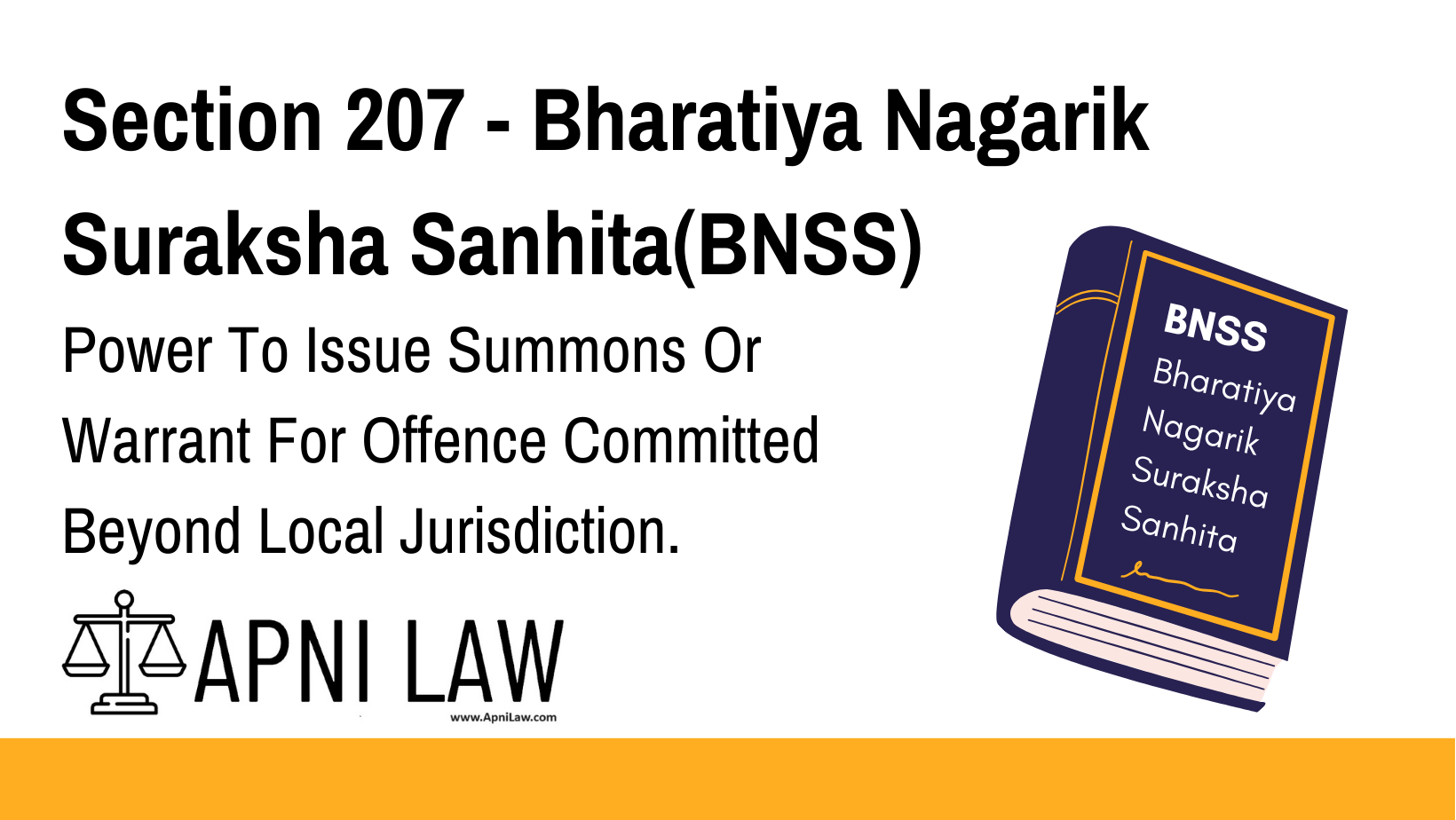BNSS Section 207: Inquiry and Trial of Offences Committed Outside Jurisdiction
This section deals with the scenario where an offence has been committed outside the jurisdiction of a Magistrate of the First Class but is triable in India. It empowers the Magistrate to inquire into the offence and take necessary steps to ensure the accused is brought before the appropriate court for trial.
Code:
(1) When a Magistrate of the first class sees reason to believe that any person
within his local jurisdiction has committed outside such jurisdiction (whether within or
outside India) an offence which cannot, under the provisions of sections 197 to 205 (both
inclusive), or any other law for the time being in force, be inquired into or tried within such
jurisdiction but is under any law for the time being in force triable in India, such Magistrate
may inquire into the offence as if it had been committed within such local jurisdiction and
compel such person in the manner hereinbefore provided to appear before him, and send
such person to the Magistrate having jurisdiction to inquire into or try such offence, or, if
such offence is not punishable with death or imprisonment for life and such person is
ready and willing to give bail to the satisfaction of the Magistrate acting under this
section, take a bond or bail bond for his appearance before the Magistrate having such
jurisdiction.
(2) When there are more Magistrates than one having such jurisdiction and the
Magistrate acting under this section cannot satisfy himself as to the Magistrate to or before
whom such person should be sent or bound to appear, the case shall be reported for the
orders of the High Court.
Explanation:
(i) Section 207 outlines the procedure when a Magistrate of the First Class finds reason to believe that an individual within their jurisdiction has committed an offence outside that jurisdiction. This offence must meet the following conditions:
It cannot be inquired into or tried within the Magistrate’s jurisdiction under Sections 197 to 205 or any other existing law.
It is triable in India under some existing law.
In such situations, the Magistrate can:
Inquire into the offence as if it had been committed within their jurisdiction.
Compel the accused to appear before them.
Send the accused to the Magistrate with jurisdiction to inquire into or try the offence.
If the offence is not punishable by death or life imprisonment and the accused is willing to give bail, take a bond with or without sureties for their appearance before the Magistrate having jurisdiction.
(ii) If there are multiple Magistrates with jurisdiction and the Magistrate acting under this section cannot determine which one to send the accused to, they must report the case to the High Court for instructions.
Illustration:
A person residing in Delhi commits a theft in Nepal. As the theft occurred outside India, a Magistrate in Delhi cannot directly try the case. However, under this section, the Magistrate can inquire into the matter and send the accused to the appropriate court in India for trial.
Common Questions and Answers:
- Q: Can a Magistrate try an offence committed outside India under this section?
A: No, this section only allows the Magistrate to inquire into the offence. The magistrate can send the accused to the appropriate court for trial. They cannot themselves try the case. - Q: What happens if the accused refuses to appear before the Magistrate?
A: The Magistrate can use the powers provided in the code to compel the accused’s appearance. - Q: What happens if there are multiple Magistrates with jurisdiction?
A: The Magistrate should report the matter to the High Court for instructions on which Magistrate should handle the case.







